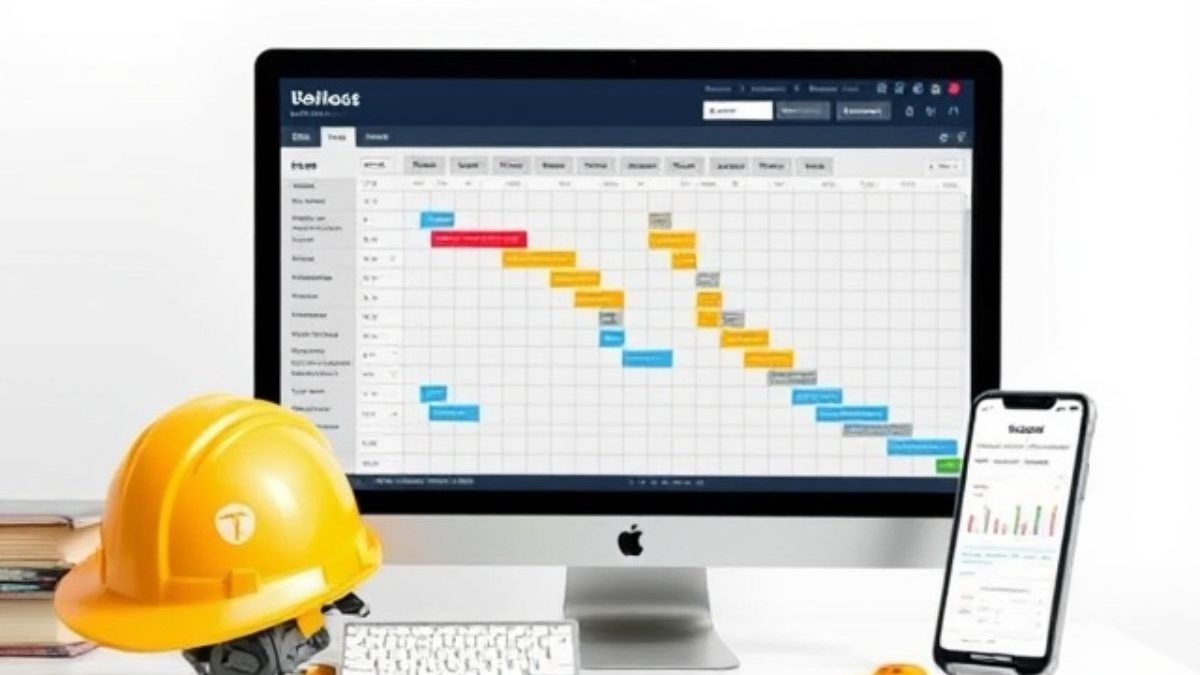In the dynamic world of construction, managing project timelines effectively determines not only the success of a project but also its profitability. Delays can cascade into increased costs, strained relationships, and potential penalties. Against this backdrop, construction scheduling software has emerged as an indispensable tool, offering unparalleled precision in planning and executing complex construction projects.
Table of Contents
Revolutionizing Timeline Management with Technology
The introduction of construction scheduling software has revolutionized how project managers plan, monitor, and adjust construction timelines. This technology allows for a granular level of detail that was previously unattainable with manual methods. By integrating all aspects of a project—from workforce allocation to material delivery schedules—this software ensures that every element is precisely synchronized.
The utilization of construction scheduling software enables project managers to identify potential bottlenecks early, allowing for proactive adjustments before these issues can impact the timeline. This capability is not just about maintaining schedules; it’s about enhancing the accuracy of every phase of the construction process, ensuring that projects are completed on time and within budget.
Key Features That Enhance Timeline Accuracy
Real-Time Updates: One of the standout features of construction scheduling software is its ability to provide real-time updates. As conditions on the ground change, the software adjusts the project timeline accordingly, offering continuous visibility into the project’s progress and any deviations from the plan.
Collaborative Planning: This software fosters a collaborative environment where all stakeholders can view and update the schedule. This shared access helps ensure that everyone is on the same page, reducing the chances of miscommunication and delays.
Predictive Analytics: Advanced construction scheduling software often includes predictive analytics capabilities, which use historical data and project trends to forecast potential delays. This feature allows project managers to anticipate problems and implement solutions before they affect the timeline.
Addressing Challenges in Construction Scheduling
Despite the sophistication of modern software solutions, implementing them is not without its challenges. Resistance to change from teams accustomed to traditional methods can hinder the adoption of new technologies. Furthermore, the initial setup and integration of construction scheduling software into existing systems can be complex and time-consuming.
However, the long-term benefits far outweigh these initial hurdles. Training and gradual integration can ease the transition, and the improvements in efficiency, cost savings, and project delivery times present a compelling case for the shift towards digital scheduling solutions.
Real-World Success Stories
The effectiveness of construction scheduling software is best illustrated through real-world applications. For instance, a major construction firm handling a city infrastructure project implemented this software to coordinate multiple subcontractor schedules across different project sites. The software’s precision in scheduling and resource allocation cut the project’s expected duration by several weeks, significantly reducing labor costs.
Another case involved a residential development where the project manager used scheduling software to tightly control the delivery and installation of critical building materials. This careful coordination helped avoid construction delays, even when faced with unexpected supplier issues.
Conclusion
In today’s fast-paced construction industry, maintaining accurate project timelines is more critical than ever. Construction scheduling software stands out as a key technological ally, transforming the landscape of project management through enhanced precision and efficiency. By integrating this software into their operations, construction firms can not only meet but exceed their project delivery expectations, setting new standards for accuracy and reliability in construction planning. As the industry continues to evolve, the role of construction scheduling software will undoubtedly expand, becoming an essential tool in the arsenal of successful construction professionals.

